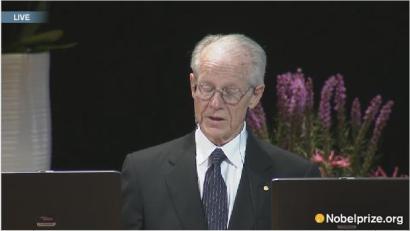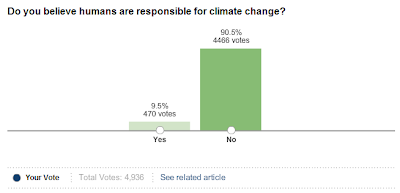Janet Yellen, president, San Francisco Federal Reserve
Leading dove on the committee. A heavyweight former senior economic adviser in the Clinton White House who recently joined the Group of 30 leading global policymakers. Expects the recovery will "look something like an L with a gradual upward tilt". Believes the output gap exerts the dominant influence on prices and that "economic slack and downward wage pressure are pushing inflation below rates that are consistent with price stability"
Eric Rosengren, president, Boston Fed 
Has a special interest in the problem of banks "too big to fail". Thinks the recovery is "quite capable of falling short" of market expectations. Like Ms Yellen, is worried about inflation falling too low and fears premature tightening. Says rate policy should be based on the understanding that, "We need the economy to grow rapidly enough that unemployment falls substantially and inflation settles at a rate near 2 per cent"
MODERATE DOVES
Donald Kohn, vice-chair, Federal Reserve board
The most influential figure after chairman Ben Bernanke, Mr Kohn is an anchor against pressure from hawks. Defends the dual mandate, and a focus on core inflation and the output gap, saying the Federal Reserve act requires the Fed to consider the "level of output relative to the economy's potential" alongside the inflation rate. Thinks "the persistence of economic slack" will keep inflation subdued and worries about inflation falling too low
William Dudley, president, New York Fed 
Succeeded Tim Geithner as head of the New York Fed, a pivotal position in the system. Sees a recovery "less robust than desired" because of headwinds from the banking sector. Distinguishes sharply between the "how" and "when" of exit strategy, and stresses that the Fed's preferred option is not to sell its portfolio of assets back into the market. Says, "We face meaningful downside risks to inflation over the next year or two"
CENTRE
Ben Bernanke, chairman, Federal Reserve board
The chairman defines the centre of the committee and fashioned the radical "credit-easing" strategy that is now winding down. Shares the doves' belief that there is a large output gap that will put considerable downward pressure on inflation but puts more emphasis on inflation expectations as an autonomous factor. Last year edged the Fed away from an exclusive focus on core inflation; is not indifferent to dollar weakness
Daniel Tarullo, governor, Federal Reserve board
An Obama appointment with close ties to the White House, he is an expert on regulation and leads the Fed's overhaul of financial supervision including bankers' pay. Has not taken sides in the debate over monetary policy. Says pay should be viewed as a "safety and soundness" issue, and wants to avoid a "formulaic approach" to achieving this. Favours stronger capital and liquidity requirements for banks and more co-ordinated bank supervision
Elizabeth Duke, governor, Federal Reserve board
The former banker has remained relatively quiet in public on monetary policy, though she is an influential voice on the banking sector and credit trends. A few months ago she judged that the "decline in lending is not tremendously large relative to the experience of past business cycle downturns" and that the credit crunch was less intense than that of the 1990-91 recession thanks to massive policy interventions
Charles Evans, president, Chicago Fed
Has gone further than others in putting a time frame on the first rate rise – "most likely to be towards the end of 2010/11" – though that assessment is not set in stone. Gives weight to the output gap and inflation expectations. Says "resource gaps remain substantial today. That's a significant mitigating factor against inflation pressures". Also sees inflation expectations as a "powerful determinant of inflation", the stability of which cannot be taken for granted
Dennis Lockhart, president, Atlanta Fed
Centrist leaning recently towards the dovish, with fears about the underlying strength of the recovery. Notes that "both the data and anecdotal descriptions of ground-level reality are quite mixed", with foreclosures, unemployment, income and bank failures continuing "to disappoint". Is "particularly concerned about interaction among bank lending, small business employment" and commercial property, with small businesses reliant on credit from troubled banks
Sandra Pianalto, president, Cleveland Fed
A centrist with dovish tendencies, she says: "We have a lot of ground to make up before we even get back to the levels of output seen in 2007". Sees "considerable slack" and "tangible evidence" that this will help keep inflation subdued. But still sees the inflation outlook as "uncertain". Why? Inflation concerns relating to the Fed's swollen balance sheet "must be taken seriously" even if policymakers think these concerns are misplaced
James Bullard, president, St Louis Fed
Centrist leaning towards the hawkish, says uncertainty over inflation is "as high as it has ever been since 1980". Still sees a lingering deflation risk but, beyond that, an inflation risk. An independent thinker, he shares some positions with doves and some with hawks. Has little time for output-gap analysis – thinks the Fed should start tightening as soon as strong job growth resumes. Favours selling assets rather than raising rates to begin with
Narayana Kocherlakota, president, Minneapolis Fed
Newcomer who took office only last month. No policy views yet expressed
MODERATE HAWKS
Kevin Warsh, governor, Federal Reserve board
The DC Fed's ambassador to Wall Street, he puts more weight than others on the upswing in financial markets as a "forward-looking sign of growth and inflation prospects". Is optimistic about a "positive feedback loop" between market strength and economic activity, but is watching asset prices carefully. Warns against waiting until the economy is back to normal before raising rates and says when the Fed tightens it may have to do so rapidly
Richard Fisher, president, Dallas Fed
Former über-hawk, moving towards the centre. Thinks the recovery will look like "a check mark" with a slope "that is less than desirable and might possibly be repressed by an occasional pause". Worries that businesses will be slow to start hiring again. Says "inflation is likely to remain subdued for a time" but fears Fed guidance on rates may be fuelling the dollar carry trade, which could end in a disorderly adjustment in asset markets
STRONG HAWKS
Charles Plosser, president, Philadelphia Fed
Thinks "the good news will increasingly outweigh the bad news" on growth and views unemployment as a "lagging indicator". Sees little near-term risk of inflation but "greater risk of high inflation in the intermediate to long term". Deeply sceptical about output gaps; says the crisis has hit potential output as well as demand. Troubled by the Fed's interventions in private credit markets and wants to get back to more rules-based policy
Jeffrey Lacker, president, Richmond Fed
Prioritises inflation expectations and is sceptical about output-gap analysis – which he says "greatly underestimated inflation" in the 1970s. Fears ongoing Fed asset purchases will push bank reserves beyond desired levels at which point policy will become much more stimulative. Sees inflation as medium-term risk and wants Fed to tighten "when growth becomes strong enough and well enough established" – but admits it is not certain that this will come in 2010
Thomas Hoenig, president, Kansas City Fed
Was first to raise the need for the Fed to tighten in a timely fashion in June, with the words "as the economy begins to recover, even at a modest pace . . . the current level of monetary accommodation will need to be withdrawn". Concerned about banks "too big to fail". Worries about excess reserves and appears keen to get away from near-zero rates. Says "moving from zero to one per cent, for example, is not tight policy"


![Reblog this post [with Zemanta]](http://img.zemanta.com/reblog_e.png?x-id=c246d157-306c-49b3-ac7b-dc83ccb6d093)

![Reblog this post [with Zemanta]](http://img.zemanta.com/reblog_e.png?x-id=b69228cc-102f-4691-ac06-00b6a6bc7128)








![Reblog this post [with Zemanta]](http://img.zemanta.com/reblog_e.png?x-id=36d206e7-a04a-4080-8b36-8fc7e50bba9f)




![Reblog this post [with Zemanta]](http://img.zemanta.com/reblog_e.png?x-id=b31d3ec4-cae4-4753-82d0-3ff4fa548917)
![Reblog this post [with Zemanta]](http://img.zemanta.com/reblog_e.png?x-id=27efad63-455e-41ea-aa91-9c68ff31b9f4)

![Reblog this post [with Zemanta]](http://img.zemanta.com/reblog_e.png?x-id=bf19845b-8127-43d5-ab53-fd722989050d)




![Reblog this post [with Zemanta]](http://img.zemanta.com/reblog_e.png?x-id=2df49cfc-a9a7-4333-8516-fbe7fc3f62b0)
![Reblog this post [with Zemanta]](http://img.zemanta.com/reblog_e.png?x-id=96287378-429e-47f9-8a70-db2b8d4860b6)

![[CREHERD]](http://s.wsj.net/public/resources/images/MI-AZ896_CREHER_NS_20091118233636.gif)

![Reblog this post [with Zemanta]](http://img.zemanta.com/reblog_e.png?x-id=ec21b57d-8b69-4ea6-b78c-75730a80b300)



![Reblog this post [with Zemanta]](http://img.zemanta.com/reblog_e.png?x-id=bbf0d872-6e52-4d75-ac57-6be3c9e278cb)



![Reblog this post [with Zemanta]](http://img.zemanta.com/reblog_e.png?x-id=0fa25e8b-3fee-4974-9ba2-1b7494f125bc)

